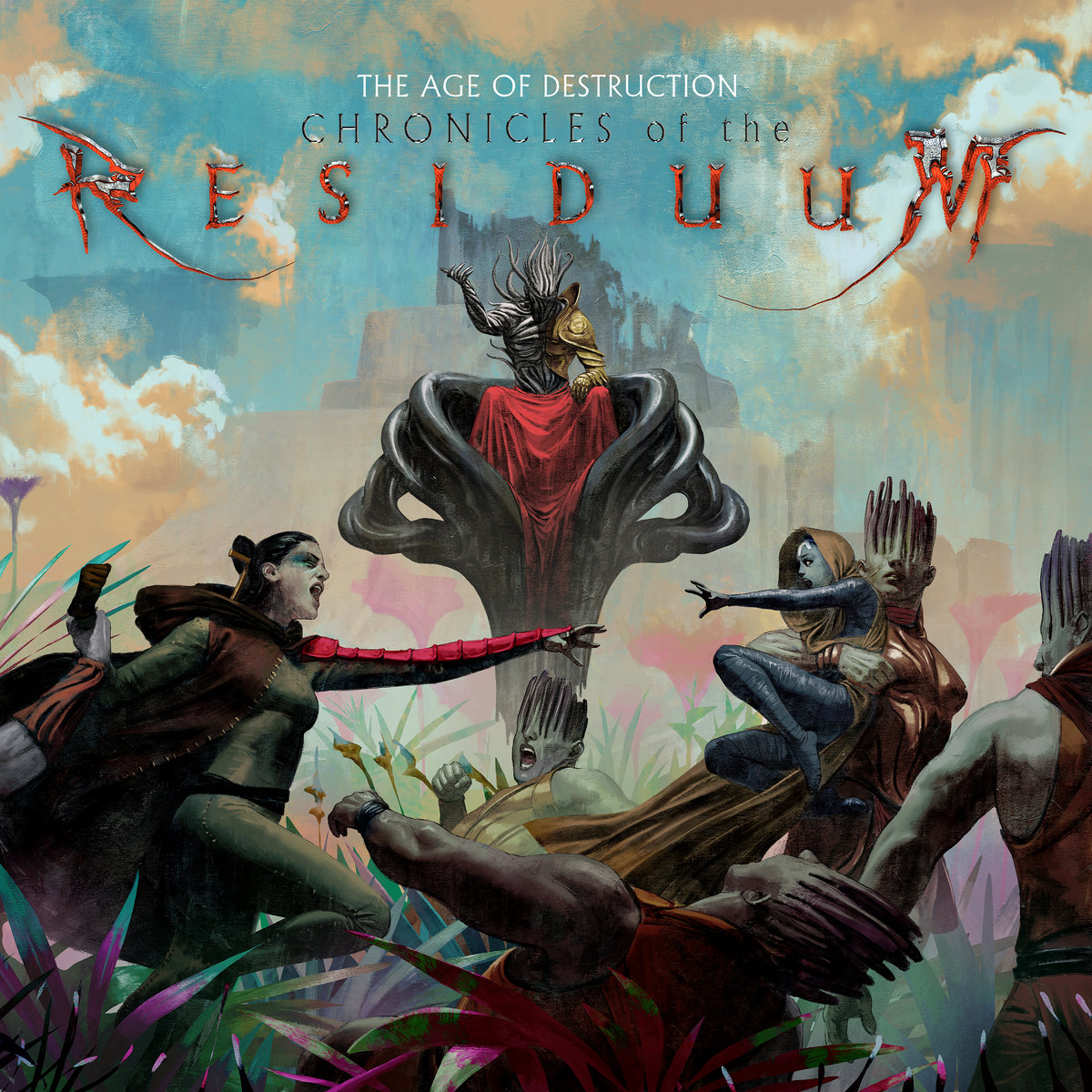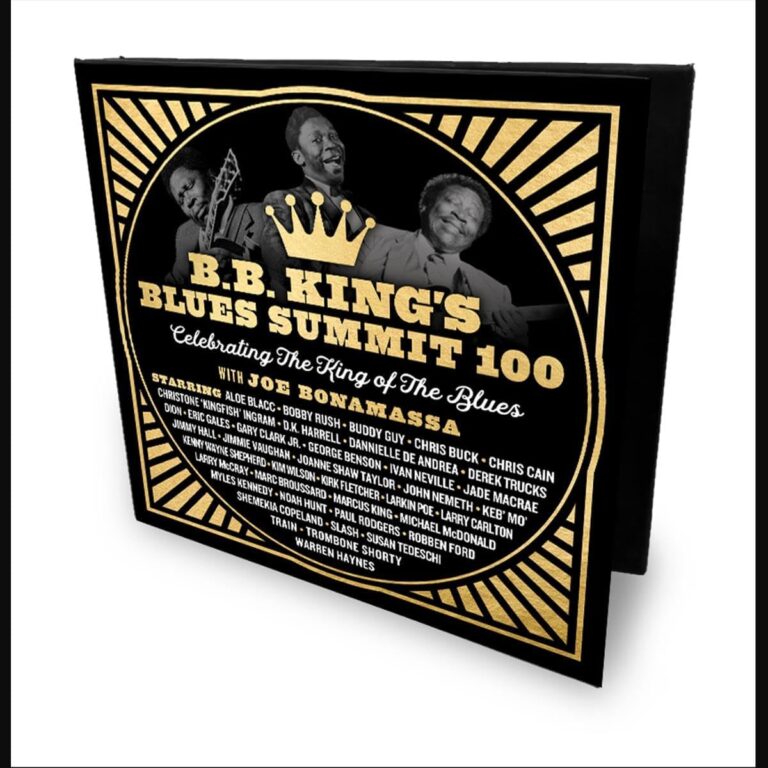
Oh, I’m such a sucker for ambition.
While there’s absolutely nothing wrong with a blast of pure rock ‘n’ roll energy (hell, I’m a sucker for that too), there’s something so inspiring about an artist who flies against received wisdom and unleashes a project of immense scope and narrative – often aware that they’re walking a fine line indeed (especially in today’s streaming-driven times) but doing it anyway.
Artistic integrity? Artistic bravado? Sheer bloody foolishness? Maybe a touch of all three but, for me, albums like The Wall, Mellon Collie And The Infinite Sadness, or (perhaps more pertinent here), Jeff Wayne’s War Of The Worlds and Future Sound Of London’s Dead Cities, are examples of artists hanging out in the wind and creating something truly amazing in the process.
To this short but compelling list we might add Robert Ratcliffe, who has pulled together a remarkable and dramatic album titled Chronicles Of The Residuum – The Age Of Destruction. A cinematic, sci-fi concept piece, Chronicles… has a fully-fledged narrative lent greater weight by the involvement of David and Jesse Peterson (who helped create the languages heard in Game of Thrones and Dune), and voice artist John Cavanagh, who takes on the role of narrator.
Musically, Chronicles… eschews the progressive rock that its narrative scope might imply to embrace a mix of techno, industrial, ambient, and house that proves entirely compelling. Like Orbital, FSOL, and Leftfield, Robert shows an immense grasp of welding the minimalist beats that electronic music demands with the sweeping progression demanded of album-driven rock music and the results are frequently breathtaking. With John Cavanagh’s narration driving the story forward and providing segues between airy ambient and pulsing dance music, it’s an expansive, dynamic album that defies easy categorisation.
Developed over the course of seventeen tracks, the album introduces itself amidst a haze of ambient noise on Prologue, before plunging the listener into the dark industrial nightmare of Escape From Port Fallen. Imagine if NIN and Hans Zimmer were to collaborate, this splenetic beat-driven assault would likely be the result, and it certainly sets the adrenal glands to overdrive. It’s followed by Storm Flight, which proves to be a more schizophrenic piece, Ratcliffe deftly juxtaposing dreamy ambient with hard-edged beats. The narrative, meanwhile, is so effectively woven into the piece that you can either embrace it entirely (and it’s so well written that it’s worth a listen) or focus on the music, with the monologue simply forming another part of the remarkable sonic tapestry Ratcliffe has created.
Having drawn the listener in, the pace of the story slows as we drift into The Fog. With John Cavanagh possessed of a voice that echoes the remarkable gravitas of Richard Burton, the narrative carries its own weight, while the eerie, throbbing music evokes a hidden landscape, shrouded in mystery and filled with hidden dangers. Part Aphex Twin, part FSOL, it’s mood music for the unhinged, while the production (overseen by Grammy-award winning David Donaldson) is entirely immersive.
The story takes a darker turn as the protagonists are captured and then forced to go on the run during Lizards Of Deathwhich, with its huge beats and woozy synth stabs, sounds like The Prodigy on acid. Following Mirror Of Night And Day, which is almost entirely narrative driven, we get two lengthy tracks : Cathedral Of Time (Parts 1 & 2) which, together, clock in at almost fifteen minutes. An epic that combines elements of Enigma, Orbital, and Aphex Twin, it drifts between the skittering beats and quasi-religious soundscapes of part 1 and the rage-filled big beat / industrial cataclysm of part 2.
With the narration uncovering a fantastic vista for the listener, Floating Gardens Of Gilas Lim offers both beauty and brutality for, within the walls of the titular environment lies an ambush. For this, Robert seeks to convey the looming danger and ethereal beauty via a combination of increasingly corroded beats and airy synth lines, the latter slowly buried under layers of gleaming, metallic noise. Less forgiving is Eye Of Ronayosho, which employs a similar narrative device to Tolkien’s Mirror Of Galadriel, as Anku is beset by terrible visions. In contrast, the ambient beauty of Dream Within A Dream soothes the senses, the beats temporarily in abeyance, allowing the listener to float amidst the billowing clouds of synth.
Another largely narrative driven piece, Knights of the Mem Ittarai/The Prophecy provides a bridge between the gorgeous Dream Within A Dream and the slithering, Aphex Twin-esque beats of Dead City. The action ramps up on Nest Of Ghovzakh, an action-packed slab of menacing industrial not a million miles from NIN’s recent Tron Aires soundtrack and the violence ramps up still further on Attack Of The Iksi’e, which finds the beats all but overwhelmed by icy shards of echo and heavily overdriven bass.
With the album (and the first part of this epic narrative) coming to an end, the eerie Return To The Broken Palace pits haunting vocals against hulking great dubstep beats, as if Skrillex were going head-to-head with Anneke Van Giersbergen, before the album wraps up with the gorgeous coda that is City Of Echoes, a gentle sun-dappled ambient piece that slowly brings us to the fade.
We live in a world where, all too often, we are told ambition is a hinderance to success. Record labels, who once allowed the likes of Pink Floyd free rein in their studios, now shun artistic impulse altogether to focus on churning out originality-free tracks that, written to a formula and smoothed into anodyne conformity by identikit production, appeal to those for whom music is nothing more than a background noise. And then, every once in a while, you get an artist like Robert Ratcliffe whose staunch refusal to play the game is as refreshing as it is inspirational.
The Chronicles Of Residuum – The Age Of Destruction is a passion project. Ambitious, heartfelt, and beautifully produced, it walks a perfect line wherein almost any track (a handful of narrative segues notwithstanding) could appeal to the streaming masses, while remaining most effective when heard as a complete piece. The soundtrack to a film yet to be made, it combines narrative depth with an eclectic range of musical influences, and the result is nothing short of mesmerising.
If you truly want to enjoy this album, dim the lights, unplug the phone, and let it take you where it will, but make no mistake, this is one of the most exciting electronic releases since Leftfield’s self-titled debut or FSOL’s still-astonishing Dead Cities. It is a masterpiece destined for cult worship and, believe me, Robert Ratcliffe deserves every ounce of your attention. 9.5/10



